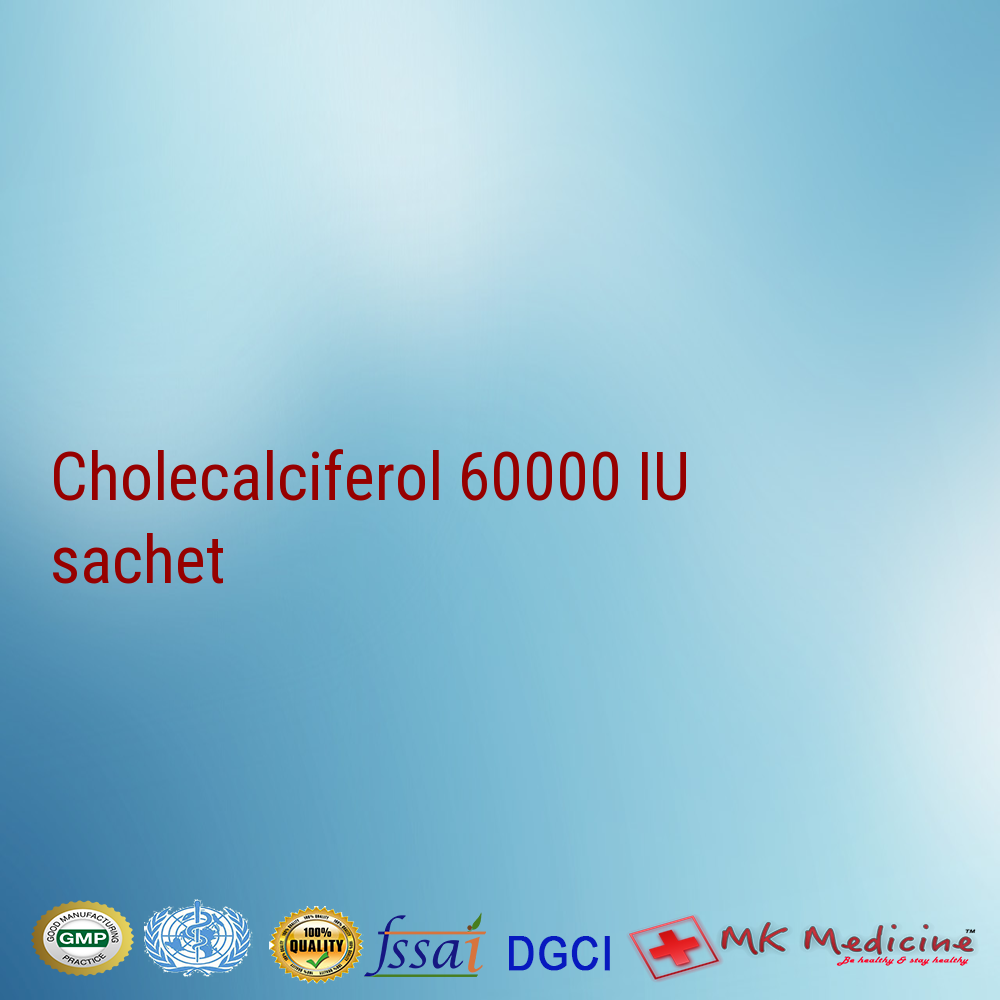Vitamin D (ergocalciferol-D2, cholecalciferol-D3, alfacalcidol) is a fat-soluble vitamin that helps your body absorb calcium and phosphorus. Having the right amount of vitamin D, calcium, and phosphorus is important for building and keeping strong bones. Vitamin D is used to treat and prevent bone disorders (such as rickets, osteomalacia). Vitamin D is made by the body when skin is exposed to sunlight. Sunscreen, protective clothing, limited exposure to sunlight, dark skin, and age may prevent getting enough vitamin D from the sun.
Vitamin D with calcium is used to treat or prevent bone loss (osteoporosis). Vitamin D is also used with other medications to treat low levels of calcium or phosphate caused by certain disorders (such as hypoparathyroidism, pseudohypoparathyroidism, familial hypophosphatemia). It may be used in kidney disease to keep calcium levels normal and allow normal bone growth. Vitamin D drops (or other supplements) are given to breast-fed infants because breast milk usually has low levels of vitamin D.
MK Medicine is a leading pcd franchise provider, contract manufacturer and hospital supplier of WHO-GMP certified Cholecalciferol 60000 IU sachet
Drug interactions may change how your medications work or increase your risk for serious side effects. This document does not contain all possible drug interactions. Keep a list of all the products you use (including prescription/nonprescription drugs and herbal products) and share it with your doctor and pharmacist. Do not start, stop, or change the dosage of any medicines without your doctor‚s approval.
Some products that may interact with this drug include: phosphate binders.
Check the labels on all your prescription and nonprescription/herbal products (such as antacids, laxatives, vitamins) because they may contain calcium, magnesium, phosphate, or vitamin D. Ask your pharmacist about using those products safely.
Vitamin D is very similar to calcitriol. Do not use medications containing calcitriol while using vitamin D.
This medication may interfere with certain laboratory tests (including cholesterol tests), possibly causing false test results. Make sure laboratory personnel and all your doctors know you use this drug.
Vitamin D at normal doses usually has no side effects. If you have any unusual effects, contact your doctor or pharmacist promptly.
If your doctor has directed you to take this medication, remember that he or she has judged that the benefit to you is greater than the risk of side effects. Many people using this medication do not have serious side effects.
Too much vitamin D can cause harmful high calcium levels. Tell your doctor right away if any of these signs of high vitamin D/calcium levels occur: nausea/vomiting, constipation, loss of appetite, increased thirst, increased urination, mental/mood changes, unusual tiredness.
A very serious allergic reaction to this drug is rare. However, get medical help right away if you notice any symptoms of a serious allergic reaction, including: rash, itching/swelling (especially of the face/tongue/throat), severe dizziness, trouble breathing.
This is not a complete list of possible side effects. If you notice other effects not listed above, contact your doctor or pharmacist.
Before taking vitamin D, tell your doctor or pharmacist if you are allergic to it; or to other vitamin D products (such as calcitriol); or if you have any other allergies. This product may contain inactive ingredients (such as peanut/soy), which can cause allergic reactions or other problems. Talk to your pharmacist for more details.
Before using this medication, tell your doctor or pharmacist your medical history, especially of: high calcium/vitamin D levels (hypercalcemia/hypervitaminosis D), difficulty absorbing nutrition from food (malabsorption syndrome), kidney disease, liver disease.
Before having surgery, tell your doctor or dentist about all the products you use (including prescription drugs, nonprescription drugs, and herbal products).
During pregnancy, doses of vitamin D greater than the recommended dietary allowance should be used only when clearly needed. Discuss the risks and benefits with your doctor.
This medication passes into breast milk. Consult your doctor before breast-feeding.
Important Notice:- The Database is still under development and may contain inaccuracies. It is not intended as a substitute for the expertise and judgement of your physician, pharmacist or other healthcare professional. It should not be construed to indicate that the use of any medication in any country is safe, appropriate or effective for you. Consult with your healthcare professional before taking any medication.


Collagen Peptides 10 gm Sachet